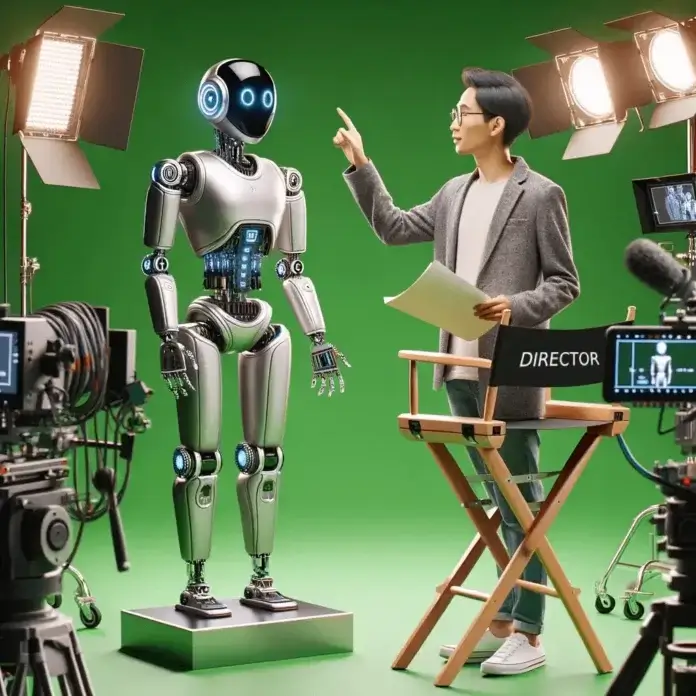The entertainment industry has always been at the forefront of adopting new technologies, whether it’s the transition from silent films to talkies, black and white to color, or the more recent shift from analog to digital. In this constant evolution, Artificial Intelligence (AI) has become the latest frontier. With advancements in AI, one question that arises is: Will AI replace actors?
The Role of AI in Entertainment
AI has already made significant inroads into the entertainment industry. It’s used for everything from generating realistic visual effects to composing music that can rival the works of human composers. In terms of acting, AI can now create digital characters that can express emotions, talk, and even mimic human movements with astonishing realism. The rise of deepfake technology, which allows for the creation of highly realistic video footage of people, often celebrities, saying or doing things they never actually did, is a testament to this capability.
The Limitations of AI in Acting
Despite these advancements, there are fundamental aspects of human performance that AI has yet to replicate fully. Acting is not just about delivering lines or facial expressions; it’s about understanding complex human emotions and experiences and conveying them in a way that resonates with an audience. AI lacks the inherent emotional depth and life experiences that human actors bring to their roles, making it challenging for AI to replace human actors entirely.
Moreover, acting is an art form that requires a level of spontaneity and improvisation. It’s not just about following a script but also about reacting to other actors and the environment in real-time, something that AI, as of my last update, struggles with.
The Complementarity of AI and Human Actors
Instead of replacing actors, AI is more likely to complement them. AI can take on repetitive tasks, assist with stunts, or even help in training actors. It can also be used to create realistic crowd scenes or to replicate actors when they are unavailable, as has been done posthumously or when an actor has aged out of a role. This partnership between AI and actors can enhance performances and open up new creative possibilities without eliminating the need for human talent.
Ethical and Practical Considerations
The idea of AI replacing actors also brings up several ethical and practical considerations. For instance, the use of AI to recreate performances raises questions about the ownership of an actor’s likeness and the potential for misuse. There’s also the concern about job displacement. While AI may not replace actors completely, it could reduce the number of roles available to human actors, affecting their livelihood.
Additionally, the audience’s connection to a performance is often tied to their knowledge that there’s a real person behind the character, with their own interpretations and emotions. This connection could be lost if AI were to take over acting roles, potentially changing the nature of how stories are told and experienced.
The Future of AI in Acting
Looking ahead, AI is likely to become an increasingly sophisticated tool in the hands of directors and producers. It will continue to enhance the capabilities of filmmakers, offering new ways to tell stories that were previously impossible. However, the essence of acting—conveying the human experience through performance—remains uniquely human.
AI may soon be able to convincingly portray basic roles or emulate certain performances, but the nuance and depth of a seasoned actor’s performance are irreplaceable. There will always be a demand for the authenticity that only a human can provide, ensuring that actors remain a central part of storytelling.
Final thoughts
AI is transforming the entertainment industry, but it’s unlikely to replace actors entirely. Instead, it will serve as a tool that can expand the creative palette for filmmakers and actors alike. The future of acting isn’t an either/or scenario between humans and AI; it’s a collaborative landscape where both can thrive, each bringing unique strengths to the table.
The human element in acting is something that resonates on a level beyond technology. As long as audiences crave stories that feel real and experiences that reflect the human condition, there will be a place for human actors in the spotlight. AI may change the way actors work and the types of roles they take on, but it won’t take their place on the stage or screen. The heart of acting is human emotion, and for now, that remains something that AI cannot replicate.



